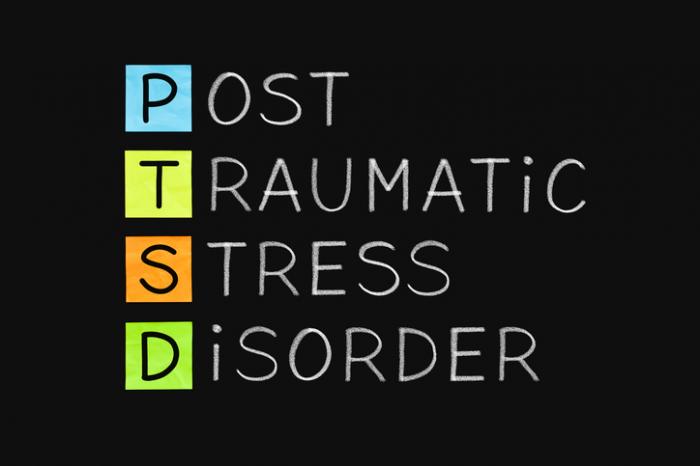WHAT IS PTSD
Post-traumatic stress disorder (PTSD) is a serious mental health condition that affects millions of Americans every year. Sparked by a traumatic event, symptoms of PTSD may include flashbacks, irritability, depression, and more. While this condition may be difficult to live with, multiple treatment options are available to patients. In addition to medication, therapy, and other forms of counseling, medical marijuana may be an effective supplement to patients living with PTSD.
Posttraumatic stress disorder (PTSD) is also considered a psychiatric disorder that may occur in people who have experienced or witnessed a traumatic event such as a natural disaster, a serious accident, a terrorist act, war/combat, or rape or who have been threatened with death, sexual violence or serious injury.
PTSD has been known by many names in the past, such as “shell shock” during the years of World War I and “combat fatigue” after World War II, but PTSD does not just happen to combat veterans. PTSD can occur in all people, of any ethnicity, nationality or culture, and at any age. PTSD affects approximately 3.5 percent of U.S. adults every year, and an estimated one in 11 people will be diagnosed with PTSD in their lifetime. Many experts say women are twice as likely as men to have PTSD.
People with PTSD have intense, disturbing thoughts and feelings related to their experience that last long after the traumatic event has ended. They may relive the event through flashbacks or nightmares; they may feel sadness, fear or anger; and they may feel detached or estranged from other people. People with PTSD may avoid situations or people that remind them of the traumatic event, and they may have strong negative reactions to something as ordinary as a loud noise or an accidental touch.
A diagnosis of PTSD requires exposure to an upsetting traumatic event. However, the exposure could be indirect rather than first hand. For example, PTSD could occur in an individual learning about the violent death of a close family or friend. It can also occur as a result of repeated exposure to horrible details of trauma such as police officers exposed to details of child abuse cases.
Is PTSD a Qualifying Medical Condition For Medical Marijuana In North Carolina?
Yes, The North Carolina Senate gave initial approval to legalize a medical marijuana bill on Tuesday, putting it one additional procedural vote away from being sent to the House shortly after a top lawmaker there said his chamber is positioned to enact the reform this session despite blocking similar legislation last year.
Senate bill 3 was filed on January 25 with sponsorship from Republican Sens. Bill Rabon and Michael Lee and their Democratic colleague Sen. Paul Lowe. If passed, the bill would legalize the medicinal use of cannabis for patients with one or more specified qualifying serious medical conditions such as cancer, ALS, Parkinson’s disease, epilepsy, multiple sclerosis, post-traumatic stress disorder (PTSD) and others. Unlike the more comprehensive medical marijuana programs in many other states, however, the bill does not authorize the use of medical marijuana by patients living with chronic pain as of yet.
Strains of Marijuana To Consider For PTSD
Blue Dream is a sativa-dominant strain known for inducing relaxation and a calm euphoria. This popular California-bred strain has THC levels of 17%-24% and a CBD content of between 0.1% and 0.2%. This strain has a reputation for elevating mood and boosting social interaction.
Sour Diesel, also known as Sour D, is sativa-dominant strain named for its pungent, diesel-like aroma. This fast-acting strain has an energizing yet dreamy effect, and users rely on it to treat stress, pain, and depression—all of which may affect people with PTSD.
OG Kush, introduced in the 1990s, has become very popular and is believed to be a cross between Hindu Kush and Chemdawg, although that has not been confirmed. The name is also a bit of a mystery, although some say that “OG” stands for Ocean Grown, in reference to its California origin.
This strain is considered to be ideal for individuals with PTSD because it provides a pleasant and euphoric effect and can calm the entire body. Its THC content is between 20% and 24%, with a CBD content of 0.2%.
Pineapple Express gives a smooth and well balanced feeling, and users report feeling clear-headed. For patients with PTSD, it can help relieve social anxiety without affecting the ability to function. Its THC content is approximately 20%, and its CBD content is 0.1%.
Master Kush is not what is considered to be a “beginner’s strain. It’s quite potent, and a favorite in Amsterdam coffee houses. For people with PTSD who are experienced users and having sleep issues, Master Kush can be an effective remedy.
Cannatonic may be particularly useful for individuals experiencing anger related to PTSD. It is very calming, with only a slight psychoactive effect. It has a low THC content of 6%, while its CBD content ranges from 6%-17%, sometimes going as high as 20%. Due to this exceptionally high CBD content, this strain is also useful for relieving anxiety and depression.
Golden Goat is a popular strain that is making its way around the US. It has a very high THC content, often above 23%, so psychoactive effects will be intense. Due to this high THC content, this strain is more suitable for PTSD patients who are already experienced users, especially with potent strains.
Get Started
If you or someone you know is suffering from PTSD and can prove residency in the State of North Carolina. Marijuana Card North Carolina can help you see a medical marijuana doctor and get your medical marijuana card all in one short visit with a physician. Contact us or Get Qualified for medical marijuana in North Carolina today.

